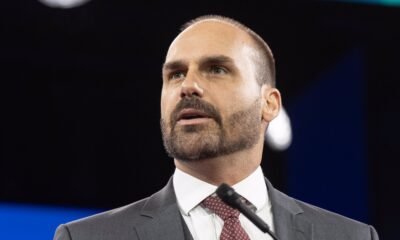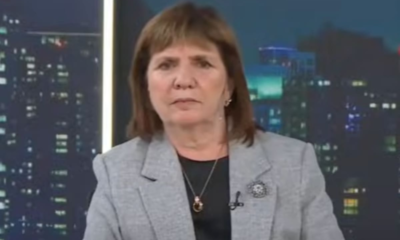INTERNACIONAL
Motines, violencia y dos fugas de película: la saga carcelaria de “Fito”, el narco que puso en vilo al sistema penitenciario de Ecuador
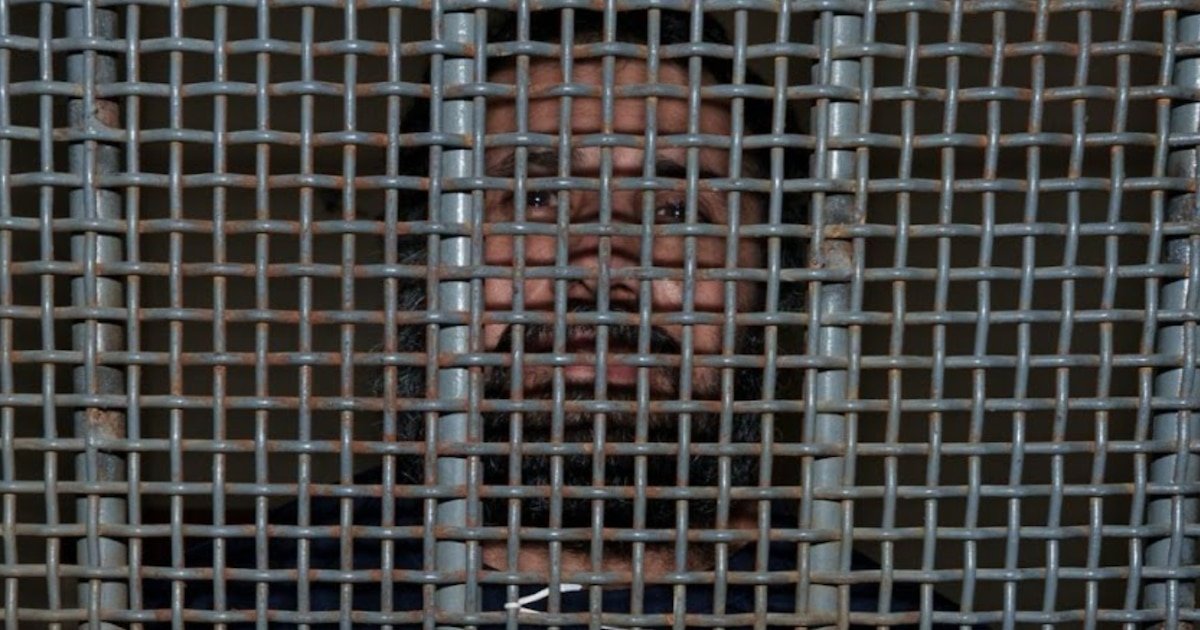
En Ecuador, pocas figuras del crimen han desafiado al Estado de manera tan audaz como José Adolfo Macías Villamar, alias “Fito”, cabecilla de la organización narcodelictiva Los Choneros, que fue recapturado la última semana tras permanecer fuera del radar de las autoridades por casi un año y medio. Lo encontraron en Manta, en Manabí, una provincia costera que es cuna de la organización criminal que Fito lidera y que se ha convertido en el centro del lavado de activo del país y en uno de los puertos desde donde se envía droga a través de lanchas rápidas hacia Centro América.
Durante más de una década, el nombre de alias Fito se ha asociado a sangrientos episodios de violencia y a dos espectaculares fugas carcelarias que expusieron las fallas de seguridad en prisiones supuestamente infranqueables.
La historia de sus dos fugas –una en 2013 bajo el gobierno de Rafael Correa y otra en enero de 2024 ya en la administración de Daniel Noboa– y su recaptura en 2025 constituye un relato de altos contrastes: desde audaces planes de escape hasta operativos militares para llevarlo nuevamente a prisión, pasando por convulsiones políticas y sociales en el país.

La primera evasión de Fito ocurrió la noche del 11 de febrero de 2013 en La Roca, la entonces cárcel de máxima seguridad de Guayaquil. Aquella noche, un grupo de reos altamente peligrosos inició un motín coordinado. Armados con pistolas y cuchillos, amedrentaron y redujeron a los guardias, a quienes inmovilizaron y despojaron de sus uniformes.
Tras tomar el control interno del penal sin dejar heridos ni muertos, los presos abrieron un boquete en una pared trasera de la prisión para alcanzar la orilla del río Daule. Allí los esperaba una lancha en la que huyeron bajo la oscuridad. La alarma de fuga no se activó sino hasta dos horas después, cuando las autoridades finalmente encontraron a los celadores atados. Para entonces, hasta 18 reclusos de alta peligrosidad –incluyendo miembros de Los Choneros y otros delincuentes que figuraban entre los más buscados de Ecuador– ya se habían esfumado en la noche.
El escape sacudió al gobierno del presidente Rafael Correa, quien había impulsado reformas en el sistema penitenciario durante su mandato. La Roca, concebida originalmente como un pabellón seguro para reos peligrosos, había pasado poco antes al control del Ministerio del Interior y enfrentaba serios problemas de violencia interna, con riñas, asesinatos e incluso explosiones dentro de sus muros.
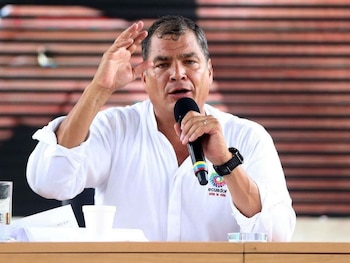
La fuga masiva representó un golpe a la imagen de seguridad estatal en plena época electoral de 2013, lo que obligó a una reacción enérgica. De inmediato, todos los guardias y el director de la cárcel fueron arrestados para investigaciones sobre una posible complicidad o negligencia. El propio Correa, en declaraciones públicas un mes después, se dirigió a los fugitivos con firmeza: “Están perdiendo el tiempo, entréguense lo antes posible, pues el peor error que pudieron cometer fue fugarse”.
Entonces el Gobierno dejó claro que no negociaría con los prófugos, rechazando peticiones como las de la madre de Fito (quien pedía garantías para la rendición de sus hijos) y advirtiendo que, de ser necesario, las fuerzas del orden harían uso legítimo de la fuerza para capturarlos.
Comenzó así una de las mayores cacerías humanas registradas en el país. Unidades élite de la Policía Nacional, con apoyo de Interpol y cuerpos de seguridad de países vecinos, rastrearon a los evadidos por todo el territorio e incluso más allá de las fronteras. Los esfuerzos rindieron fruto: en tres meses, para mayo de 2013, la mayoría de los prófugos habían sido recapturados, incluido el propio Macías Villamar. Fito y su hermano (Ronal Macías, alias “Javi”) fueron sorprendidos la madrugada del 26 de mayo de 2013 durante un operativo policial de alto impacto denominado “Halcón”.
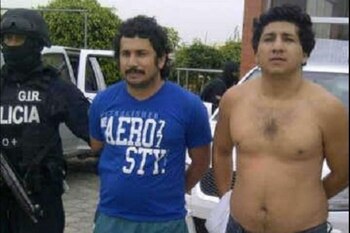
A lo largo de ese año, uno a uno, los 18 evadidos de La Roca fueron cayendo en Ecuador y otros países de la región. Entre ellos se contaba también Jorge Luis Zambrano, alias “Rasquiña” –entonces líder de Los Choneros–, quien resultó ser el último capturado, en noviembre de 2013, en Colombia.
Tras su recaptura, José Adolfo Macías fue trasladado al moderno Centro de Rehabilitación Social Regional Guayas, a las afueras de Guayaquil, para continuar cumpliendo su condena de 25 años por un asesinato ocurrido en 2011. En esa cárcel alias Fito se llenó de privilegios, desde visitas de sus parejas sentimentales, hasta negociaciones y lujos.
La recaptura entonces parecía el cierre definitivo de un capítulo oscuro: el Estado había restablecido el orden y la autoridad tras la sonada fuga de La Roca. Sin embargo, los años siguientes traerían nuevos episodios de violencia carcelaria en Ecuador, y Fito volvería a ser protagonista de otra fuga insólita.
En enero de 2024, Ecuador enfrentó una nueva pesadilla penitenciaria. Para entonces, el país vivía una escalada de violencia ligada al narcotráfico, agravada tras el asesinato del candidato presidencial Fernando Villavicencio en agosto de 2023, crimen en el cual Fito era uno de los sospechosos, pues el narco y su gente habían amenazado al entonces presidenciable.
En medio de ese tenso contexto, con el recién posesionado presidente Daniel Noboa prometiendo mano dura contra el crimen organizado, ocurrió lo impensable: alias Fito se fugó nuevamente de prisión. El cabecilla de Los Choneros, quien cumplía una sentencia acumulada de 34 años por narcotráfico, crimen organizado y homicidio, desapareció de la Cárcel Regional de Guayaquil a inicios de 2024 en circunstancias que hasta hoy no han sido esclarecidas del todo. Las autoridades calificaron la escapatoria de “misteriosa” y admitieron que, en el momento de conocerse, no tenían explicación de cómo Macías logró burlar los controles de la prisión.
Lo cierto es que la noticia de su huida estalló como una bomba política: apenas dos meses después de asumir el mando, Noboa enfrentaba su primera gran crisis de seguridad, un golpe que ponía en entredicho al Estado y daba alas a las organizaciones criminales.

Las consecuencias inmediatas de la fuga de Fito en 2024 fueron caóticas y violentas. Su escape pareció ser la chispa que encendió un polvorín: en los días posteriores se desataron motines en varias cárceles, grupos armados tomaron por asalto un canal de televisión, estallaron coches bomba en la ciudad y más de un centenar de guardias penitenciarios fueron retenidos temporalmente como rehenes en distintos centros carcelarios.
Ante esta arremetida sin precedentes, el gobierno de Noboa respondió declarando que el país enfrentaba un “conflicto armado interno”. Esta figura extraordinaria permitió desplegar a las Fuerzas Armadas tanto en las calles como dentro de las prisiones, militarizando la seguridad pública en un intento desesperado por contener la ola de violencia. El escape de Macías Villamar llevó al gobierno a catalogarlo como objetivo militar prioritario y a colocarle el rótulo del criminal “más buscado” del país. El Ministerio del Interior ofreció incluso una recompensa de un millón de dólares por cualquier pista que condujera a su paradero.
Durante 535 días, Fito logró mantenerse prófugo, tiempo en el cual las autoridades sospechan que continuó dirigiendo operaciones ilícitas desde las sombras. Las tareas de inteligencia para dar con él nunca cesaron: se conformó un Bloque de Seguridad interinstitucional dedicado exclusivamente a su captura y a la lucha contra las bandas narcodelictivas.
Finalmente, el 25 de junio de 2025, ese esfuerzo rindió frutos. Agentes de fuerzas especiales y militares dieron con una pista clave al seguir los movimientos de un hombre de confianza de Fito en la ciudad costera de Manta. Todas las piezas encajaron cuando detectaron una vivienda de lujo en el barrio La Tejedora de Manta, perteneciente a la pareja sentimental de Macías. Esa vivienda había sido allanada en enero de este año, pero no se había detectado a alias Fito. Bajo fuertes medidas de sigilo, las autoridades cercaron 15 manzanas a la redonda de la propiedad para preparar el asalto.
Lo que descubrieron superó las expectativas: un búnker de alta gama, equipado con aire acondicionado, gimnasio, piscina interna y espacios de ocio, oculto tras una escotilla disimulada en el piso de la casa. Aquel escondite, construido en hormigón y finamente amoblado, había servido de guarida a Fito durante su larga fuga, permitiéndole vivir con comodidades sorprendentes mientras coordinaba sus movimientos clandestinos.
Con la ubicación confirmada, se activó el operativo final. Bajo el nombre clave de “Gran Fénix 28”, un contingente de más de 100 efectivos del Bloque de Seguridad inició un operativo de 10 horas para capturarlo. Según los reportes oficiales, no hubo necesidad de disparos: las fuerzas especiales ingresaron al inmueble sin enfrentar resistencia armada. Utilizando tecnología de vigilancia aérea, detectaron una zona de tierra removida detrás de la casa y ordenaron el ingreso de maquinaria pesada para excavar. Al sentir que “el techo de su búnker se venía abajo”, según declaró el ministro del Interior, John Reimberg, Macías entró en pánico y abrió la escotilla de su escondite, entregándose a los militares que ya lo esperaban afuera. Así, sin un solo tiro, culminó la larga cacería: Fito volvía a estar esposado bajo custodia del Estado.

Minutos después de la captura, Macías Villamar fue trasladado con un fuerte contigente a Guayaquil. Esa misma noche llegó custodiado a las celdas de La Roca, la misma cárcel de máxima seguridad de la que se había fugado doce años atrás.
Esa tarde, antes de que Fito llegara a La Roca, el presidente Daniel Noboa anunció al país la noticia que muchos esperaban escuchar: “Fito está en manos del Bloque de Seguridad”, escribió el mandatario en su cuenta de X (antes Twitter) al confirmar la recaptura. Noboa aprovechó la ocasión para informar que su gobierno iniciaría de inmediato los trámites para extraditar a Macías Villamar a los Estados Unidos, donde un tribunal federal de Nueva York lo había acusado en abril de 2025 por cargos de narcotráfico internacional y tráfico de armas.
En Quito, los ministros de Defensa e Interior presentaron a la prensa detalles del operativo que dejó fotografías históricas que exhiben a un Fito cabizbajo y esposado, custodiado por soldados.

“Cayó Fito y van a caer todos”, declaró triunfante el ministro de Defensa, Gian Carlo Loffredo, y subrayó que la exitosa captura demostraba la efectividad del nuevo marco legal y las estrategias de seguridad implementadas por el gobierno. Loffredo cuestionó que “ciertos actores políticos” –en alusión al correísmo– hayan criticado o intentado frenar esas leyes “para proteger a sus socios”, y afirmó enfáticamente que el Gobierno de Noboa no pacta ni pactará con mafias, sino que las enfrenta con resultados.
La repercusión política de la recaptura no se hizo esperar. Desde el extranjero, el ex presidente Rafael Correa –quien actualmente reside fuera de Ecuador por problemas judiciales– lanzó dardos contra el gobierno. “Querer hacer poco menos que una fiesta nacional por recapturar a un delincuente que nunca debió fugar demuestra el grado de mediocridad del Gobierno y lo bajo que ha caído el Estado”, criticó Correa en su cuenta de X. Con estas palabras, el ex mandatario insinuó que la administración Noboa buscaba sacar rédito político de corregir una falla que él atribuye a la propia ineptitud gubernamental, sin recordar que bajo su mandato también Fito se fugó.
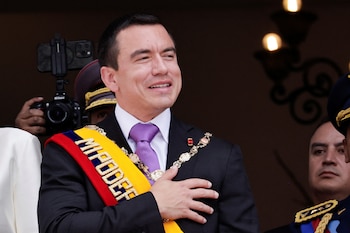
La respuesta desde el Palacio de Carondelet fue igualmente contundente. El presidente Noboa, en una entrevista con CNN en Español, desestimó las críticas de Correa, recordando indirectamente la situación legal del ex mandatario: “Si un prófugo te critica, toca hacer oídos sordos”, replicó Noboa, sugiriendo que no vale la pena atender a quien, según sus palabras, “está amargado” y carece de legitimidad para dar lecciones.
El capítulo más reciente de esta saga llegó a su fin en aquel búnker de Manta, pero las preguntas que deja son numerosas: ¿cómo pudo un solo hombre burlar dos veces al sistema penitenciario? ¿Qué redes de corrupción o complicidad lo facilitaron? Y, sobre todo, ¿logrará el Estado ecuatoriano evitar que se repita una historia similar en el futuro? Las autoridades actuales han capitalizado políticamente la captura de Fito para reforzar su discurso de mano dura, mostrando al mundo que Ecuador no cede terreno ante el narcotráfico. Pero la verdadera prueba será a largo plazo: mantener el control de unas cárceles convulsas y transformar la “victoria” de la recaptura en avances sostenibles contra el crimen organizado.
crime,horizontal,prison
INTERNACIONAL
Rosas negras y ruinas sumergidas: así es Halfeti, la ciudad escondida en el Éufrates que resurgió entre el mito y la modernidad
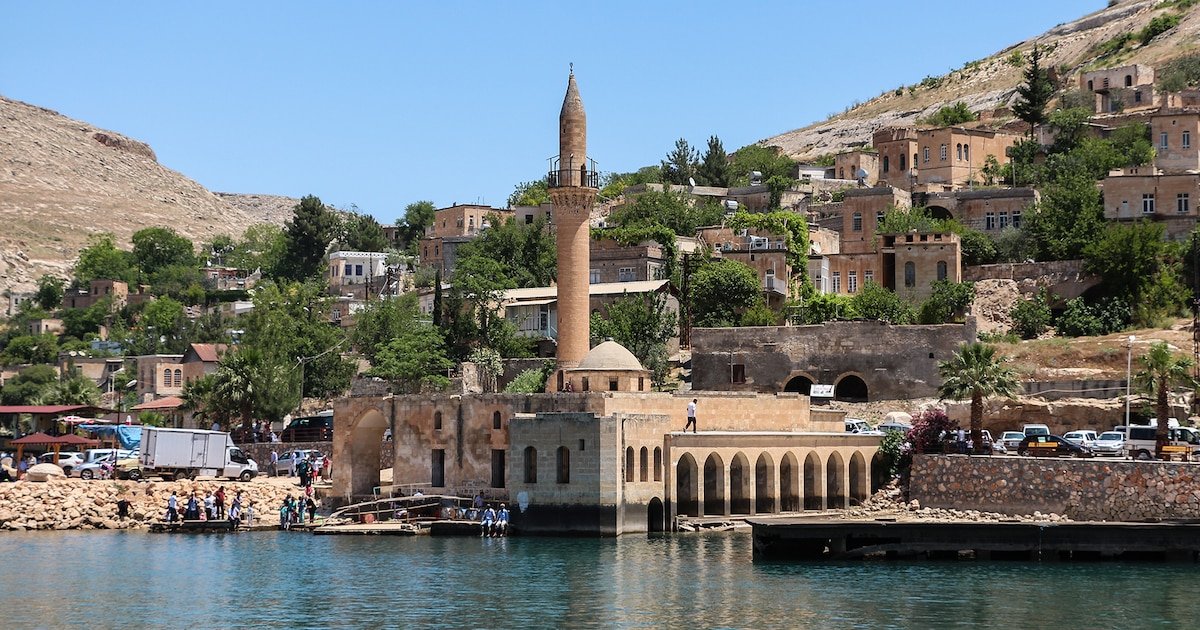
En el sureste de Turquía, a orillas del legendario río Éufrates, una ciudad emerge parcialmente de las aguas, envuelta en misterio y leyendas.
Halfeti, conocida como la “ciudad sumergida”, tuvo que transformar radicalmente su fisionomía tras quedar parcialmente bajo el agua por la construcción de la presa de Birecik, en el año 2000.
Actualmente, este enclave no solo atrae a visitantes por su singular paisaje y arquitectura sumergida, sino que también fascina al mundo con el enigma de sus famosas “rosas negras“, flores que han dado lugar a mitos, debates científicos y un renovado sentido de identidad local, según reportó CNN Travel.

A principios del nuevo milenio, la construcción de la presa de Birecik, una estructura de 60 metros de altura y 2,4 kilómetros de ancho, provocó la inundación de dos pueblos y diez aldeas en la provincia de Sanliurfa.
Según consignan medios locales, alrededor del 40% de Halfeti, que contaba con unos 2.600 habitantes, quedó sumergido bajo las aguas. Entre las edificaciones perdidas se encontraban numerosas casas de piedra, comercios y una parte significativa de la Merkez Camii, la mezquita central del siglo XIX.
La presa de Birecik forma parte de un ambicioso plan de desarrollo para el sureste de Anatolia, que incluye varias de estas estructuras a lo largo de los ríos Éufrates y Tigris. Su embalse, de 52 kilómetros cuadrados, se diseñó para regar 70.000 hectáreas de tierras agrícolas y generar unos 2.500 GWh de electricidad al año, suficiente para abastecer a casi un millón de hogares turcos.

Sin embargo, el impacto en la población local fue profundo y, en muchos casos, doloroso. Más de 6.000 personas tuvieron que ser reubicadas, y la comunidad perdió parte de su patrimonio tangible e intangible. Erhan Yildirim, investigador local, historiador y guía profesional, expresó a CNN Travel: “No se puede recuperar la cultura; la cultura permanece bajo el agua”.
Antes de la inundación, la economía de esta población era, básicamente, agropecuaria, con una reputación especial por la producción de pistachos. Muslum Karaman, operador de barco local, relató a CNN Travel que “la gente de Halfeti solía ganarse la vida con la cría de ganado y la agricultura”. Sin embargo, la llegada de la presa y la consiguiente transformación del entorno los obligaron a buscar nuevas formas de subsistencia.
Karaman explicó que la ciudad “ha cambiado completamente hacia el turismo“, y que muchos habitantes han adaptado sus viviendas para convertirlas en restaurantes, boutique y cafeterías. Esta reinvención económica le permitió a la comunidad mejorar su calidad de vida y aprovechar el creciente interés de los visitantes por la singularidad de Halfeti.

En la actualidad, Halfeti se posiciona como un destino turístico singular. Los visitantes llegan atraídos por la posibilidad de recorrer en barco, moto acuática o flyboard la arquitectura sumergida de la ciudad antigua.
El buceo se ha convertido en una de las actividades favoritas, impulsada por la apneísta turca Şahika Ercümen, quien en 2020 realizó una inmersión en Halfeti para sensibilizar sobre la contaminación por plásticos.
Además de la arquitectura sumergida, los turistas pueden realizar excursiones en barco hasta la fortaleza de Rumkale, situada a orillas del Éufrates. Este sitio histórico, cuyos cimientos datan del Imperio bizantino, permite a los visitantes explorar restos de fortificaciones armenias y conocer la compleja historia de la región, marcada por el paso de diferentes civilizaciones.

Uno de los mayores atractivos de Halfeti es el misterio de sus “rosas negras“, flores que han dado lugar a leyendas y debates científicos. Según la tradición local, es el único lugar del mundo donde florecen.
Yildirim sostiene que “si cultivas la rosa negra en cualquier otro lugar, nunca te dará el mismo color”. No obstante, expertos internacionales cuestionan su existencia. Michael Marriott, reconocido especialista floricultura, declaró a CNN Travel: “No creo que ninguna de las llamadas flores negras sea realmente negra”.
Por otra parte, Guy Barter, horticultor jefe de la Royal Horticultural Society del Reino Unido, coincide en que “las rosas negras, y en general las flores negras, rara vez son completamente negras, si no de un granate muy intenso o, como en este caso, de un rojo muy oscuro”.
El color oscuro de las rosas de Halfeti se atribuye a las condiciones únicas del suelo y el clima de la región. Marriott sugiere que los agricultores locales podrían estar utilizando raíces originales de las rosas, capaces de prosperar en suelos más ácidos, lo que oscurece los pétalos. Birsen Aşağı, vendedora local, atribuye el fenómeno a las “condiciones climáticas de aquí”.

A pesar de las dudas sobre su autenticidad, las rosas negras de Halfeti han adquirido fama internacional. Marcas como la perfumista británica Penhaligon’s han lanzado fragancias inspiradas en la flor, y los productos derivados se han convertido en un símbolo de la ciudad.
Las leyendas locales enriquecen el mito de la rosa negra. Una de ellas narra la historia de Adir, un arquitecto que construyó la mezquita de la ciudad, y su nieta Vartuhi, quien cultivaba las rosas más hermosas.
Vartuhi se enamoró de Firat, un huérfano del otro lado del río, pero su amor fue prohibido. Desesperados, ambos se arrojaron al Éufrates y, desde entonces, las rosas de Halfeti florecen negras en señal de luto.
Otra versión, relatada por Yildirim, atribuye la flor al Diablo, quien, tras el asesinato de una niña inocente, decretó que la rosa negra solo florecería en el lugar de su muerte, como símbolo de dolor y venganza.

A pocos kilómetros del pueblo, la fortaleza de Rumkale se alza como testigo de la historia milenaria de la región. Según CNN Travel, sus cimientos datan del Imperio bizantino, entre los siglos V y VI, aunque existen indicios de estructuras anteriores.
Durante los siglos XII y XIII, la fortaleza fue residencia del Catholicós, líder espiritual de la Iglesia armenia, y posteriormente cayó en manos de los mamelucos en 1292, antes de pasar al control del Imperio Otomano. La arquitectura de Rumkale, visible desde el río, recuerda la compleja y a menudo turbulenta historia de Anatolia, marcada por el cruce de culturas y religiones.
En 2013, Halfeti fue reconocida como parte de la red Cittaslow, un movimiento internacional que promueve la calidad de vida y la preservación de la cultura local.
INTERNACIONAL
Green Valley en América Latina: la oportunidad de la infraestructura digital verde en la era de la IA

Durante décadas, la infraestructura tecnológica desde los chips hasta los centros de datos fue un tema relegado a los márgenes de la discusión económica y política. Hoy, esa infraestructura es protagonista central. Es allí donde convergen la energía y los datos para impulsar la inteligencia artificial (IA), y donde se define buena parte de la competitividad futura de los países. En este nuevo mapa, América Latina y el Caribe tienen una ventana de oportunidad concreta: consolidarse como una región atractiva para el desarrollo de centros de datos verdes (green data centers), alimentados por energías renovables y articulados a una red regional que impulse la industrialización de servicios basados en IA.
La ventaja comparativa de la región es sólida y múltiple. Esta se basa en su matriz energética, su geografía y su capital humano. Según datos del Banco Mundial y la Agencia Internacional de Energía (AIE), más del 60% de la generación eléctrica en América Latina proviene de fuentes renovables, superando a regiones como Europa Occidental (40%) o Norteamérica (30%). Países como Uruguay, Paraguay y Costa Rica ya operan con matrices energéticas 100% limpias prácticamente, mientras que Brasil supera el 80% con una mezcla de hidroeléctrica, solar y eólica. Esta condición no es trivial. Para modelos de IA de gran escala, el costo energético puede representar hasta el 60% del costo total operativo de un centro de datos. Según datos de la UIT, el consumo de electricidad de Alphabet, Amazon y Microsoft alcanzó los 100 TWh en 2023, prácticamente lo que consumen juntos Colombia y República Dominicana en un año.
Sumado a lo anterior, la geografía y el clima juegan a favor de la región. Las zonas de altiplano, con temperaturas medias estables y buena conectividad, permiten reducir el gasto en enfriamiento uno de los mayores costos energéticos en operación de servidores. Bogotá, Quito, Montevideo o partes del sur de Brasil ofrecen condiciones ideales para alojar infraestructura de cómputo intensivo.
La estructura demográfica también representa un activo con una población de más de 400 millones de personas en edad laboral y un creciente número de profesionales en ciencia de datos, ingeniería de software, así como en redes. Las plataformas de formación como Platzi, Henry o Digital House están nutriendo un ecosistema de talento regional. Paulatinamente, universidades en Brasil, Chile, Colombia o México han avanzado en currículos orientados a IA y computación de alto rendimiento.
En el ámbito internacional, la oportunidad para captar inversión extranjera directa es clara. Europa, bajo el marco del Pacto Verde y la taxonomía de finanzas sostenibles, exigirá cada vez más una trazabilidad clara de la huella de carbono en las cadenas de valor digitales. Una empresa europea que entrena sus modelos en un green datacenter certificado en América Latina puede reducir sus emisiones reportadas y cumplir así sus compromisos climáticos. Asimismo, los avances tecnológicos están impulsando que las energías renovables sean incluso más asequibles que las tradicionales. Todo ello configura argumentos de pesos de atracción de capital europeo, asiático o norteamericano.
Ahora bien, la oportunidad no radica solamente en hospedar servidores, ni en hacerlo individualmente país a país. El valor agregado está en que estos centros de datos se conviertan en motores de desarrollo tecnológico local, con lógica de integración regional. Esto exige políticas de encadenamiento productivo que prioricen proveedores locales de infraestructura, servicios de nube, software y ciberseguridad; acceso preferencial a pymes tecnológicas; y condiciones para que universidades y centros de investigación accedan a capacidad computacional como bien público. Y articulación de una red federada de centros de datos interconectados, con redundancia, interoperabilidad y gobernanza compartida, que permita: el entrenamiento distribuido de modelos de IA; el almacenamiento de grandes volúmenes de datos públicos y privados; la provisión de servicios a gobiernos, empresas y universidades. Esta red también puede convertirse en un activo geopolítico, al reducir la dependencia tecnológica con respecto a infraestructuras extrarregionales.
- Establecer marcos regulatorios nacionales y regionales (o al menos entre algunos países impulsores) para green datacenters, con criterios técnicos de certificación.
- Establecer incentivos tributarios y requisitos de eficiencia energética.
- Crear un fondo regional de infraestructura digital verde, con apoyo de los bancos regionales (BID, CAF, Banco Mundial) y bancos de desarrollo nacionales, que cofinancie proyectos con alto impacto en empleo, transición energética y digitalización.
- Incentivar consorcios público-privados para el desarrollo de modelos de IA sectoriales, en salud, educación, movilidad, energía o agroindustria, utilizando la capacidad de cómputo regional como palanca de innovación.
- Incorporar cláusulas de sostenibilidad digital en los acuerdos comerciales, incluyendo interoperabilidad de datos, transferencia tecnológica y estándares abiertos para plataformas de IA.
- Establecer un observatorio latinoamericano de huella digital y climática, que mida el impacto ambiental de la infraestructura tecnológica y también promueva prácticas responsables.
La buena noticia, además, es que en algunos países las políticas públicas están – esta vez sí – , acelerando el paso al ritmo de la oportunidad. Brasil ha aprobado incentivos fiscales para infraestructura digital con eficiencia energética. Chile presentó en 2022 su Hoja de Ruta de Centros de Datos al 2030 con metas de sostenibilidad. En México, estados como Querétaro han consolidado clústeres tecnológicos donde operan Oracle, Microsoft y AWS. A ellos esperamos que se unan Uruguay y Argentina, si avanzan con marcos regulatorios nacionales impulsados desde sus presidencias.
La región no necesita copiar Silicon Valley o Shenzhen. Puede crear su propio Green Valley: un ecosistema donde la infraestructura digital, y en particular los centros de datos verdes, estén al servicio de la sostenibilidad, la soberanía tecnológica y el desarrollo humano. El momento de actuar es ahora. La inteligencia artificial será el motor económico de las próximas décadas. América Latina puede ser no solo consumidora, sino productora y exportadora de soluciones si logra construir la infraestructura inteligente y verde que el siglo XXI exige.
INTERNACIONAL
Trump signs $9B rescissions package into law, revoking funding for foreign aid, NPR
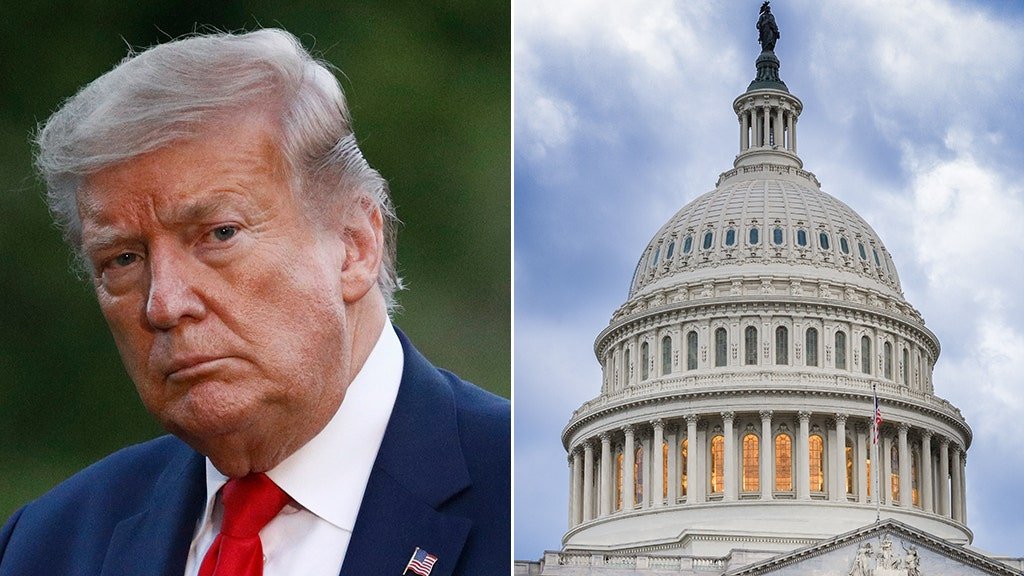
NEWYou can now listen to Fox News articles!
President Donald Trump signed into law his roughly $9 billion rescissions package to scale back already approved federal funds for foreign aid and public broadcasting on Thursday, after both chambers of Congress approved the legislation earlier in the month, sources familiar to the matter have confirmed.
The signing marks another legislative victory for the Trump administration just two weeks after the president signed into law his massive tax and domestic policy measure, dubbed the «big, beautiful bill.»
The rescissions package pulls back nearly $8 billion in funding Congress already approved for the U.S. Agency for International Development (USAID), a previously independent agency that provided impoverished countries aid and offered development assistance.
However, the Trump administration has faced layoffs and has been absorbed into the State Department amid concerns from the Trump administration that the organization did not advance U.S. core interests.
‘LONG OVERDUE’: SENATE REPUBLICANS SLAM THROUGH TRUMP’S CLAWBACK PACKAGE WITH CUTS TO FOREIGN AID, NPR
President Donald Trump talks to reporters during a Cabinet meeting. (Getty Images)
The rescissions package also pulls more than $1 billion from the Corporation for Public Broadcasting (CPB) that provides federal funding for NPR and PBS.
The House previously approved its version of the rescissions package in June, and voted on the final version of the measure early on Friday after the Senate narrowly approved the measure by a 51-48 margin early on the morning of July 17. Republican Sens. Susan Collins of Maine and Lisa Murkowski of Alaska voted alongside Democrats to oppose the package.
Senate Majority Leader John Thune, R-S.D., said that the measure aligned with other priorities to eradicate waste, fraud and abuse within the federal government and is a step in the right direction.
«I appreciate all the work the administration has done in identifying wasteful spending,» Thune said in a speech ahead of the vote. «And now it’s time for the Senate to do its part to cut some of that waste out of the budget. It’s a small but important step toward fiscal sanity that we all should be able to agree is long overdue.»
SENATE MARCHES TOWARD PASSING TRUMP’S $9B CLAWBACK BILL AFTER DRAMATIC LATE-NIGHT VOTES
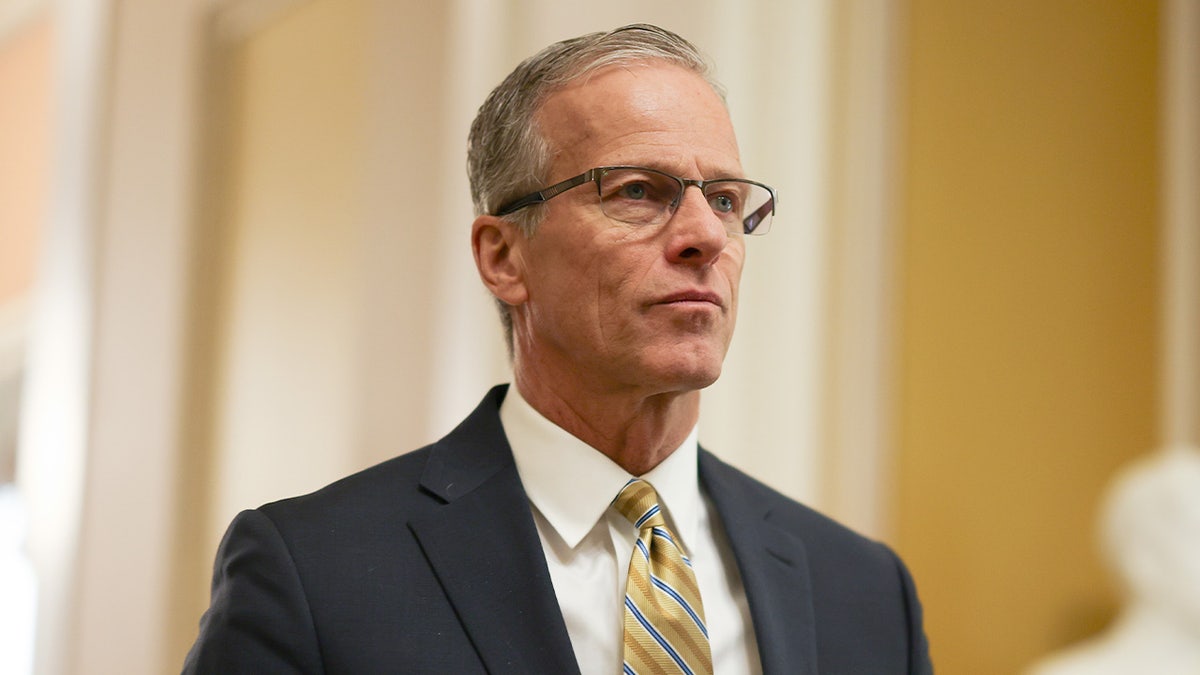
U.S. Senate Majority Leader John Thune (R-SD) heads to the Senate Chamber to vote on a bill on January 22, 2025 in Washington, DC. (Kayla Bartkowski/Getty Images)
Meanwhile, Democrats have said that the cuts to foreign aid are a win for China and Russia, and that the package puts national security at risk. Additionally, Democrats argue Republicans’ employment of rescissions sets a dangerous precedent that could jeopardize a host of programs down the line.
«If Republicans slash more American aid, it will create a dangerous vacuum that the Chinese Communist Party will continue to eagerly fill,» Senate Minority Leader Chuck Schumer, D-N.Y., said on July 15 on the Senate floor.
TRUMP’S $9 BILLION CLAWBACK PASSES FIRST SENATE TEST, WHILE MORE HURDLES AWAIT
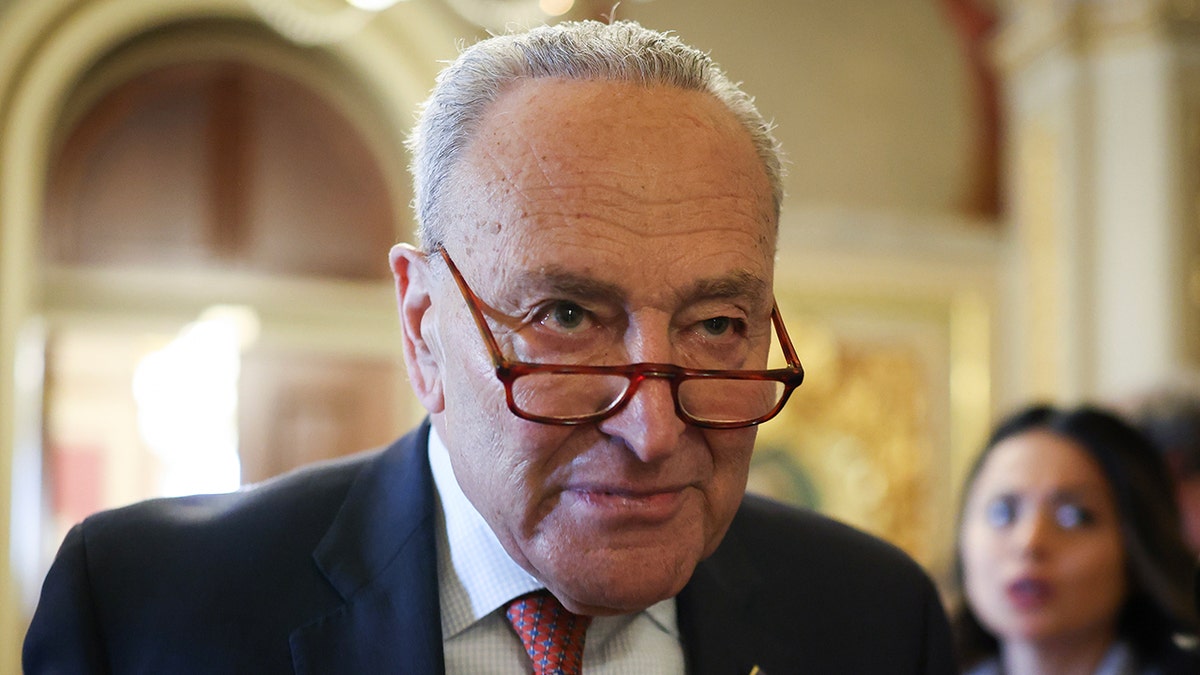
A memo from a major liberal grassroots group called out Democratic lawmakers like Senate Minority Leader Chuck Schumer, D-N.Y., for their passive approach to resisting President Trump. (Kayla Bartkowski/Getty Images)
«They are using pocket rescissions to poison the bipartisan appropriations process, to break the law to steal funds that Congress appropriated, and they’re doing it at a party-line vote,» Schumer said. «Worse, they’re letting Donald Trump decide for himself which programs to defund, and that puts everything at risk – healthcare, education, food assistance, public health. Everything – everything – becomes at risk. That is what happens if a package like this is allowed to become law.»
CLICK HERE TO GET THE FOX NEWS APP
Although Trump previously attempted to advance a rescissions package in 2018 that also targeted foreign aid and public broadcasting funds during his first term, it failed to gain support in the Senate after Collins and then-Sen. Richard Burr, R-N.C., voted against it.
The last time Congress approved a rescissions package was in 1999.
Fox News’ Alex Miller contributed to this report.

 POLITICA3 días ago
POLITICA3 días ago🗳️ El chamuyo de las elecciones en la Provincia: se postulan, pero no a asumen

 POLITICA3 días ago
POLITICA3 días agoFuerte malestar en la CGT por la ausencia de gremialistas en las listas bonaerenses del peronismo

 ECONOMIA2 días ago
ECONOMIA2 días agoEl consumo en Argentina crece 4% en junio, ante menor inflación y más crédito





